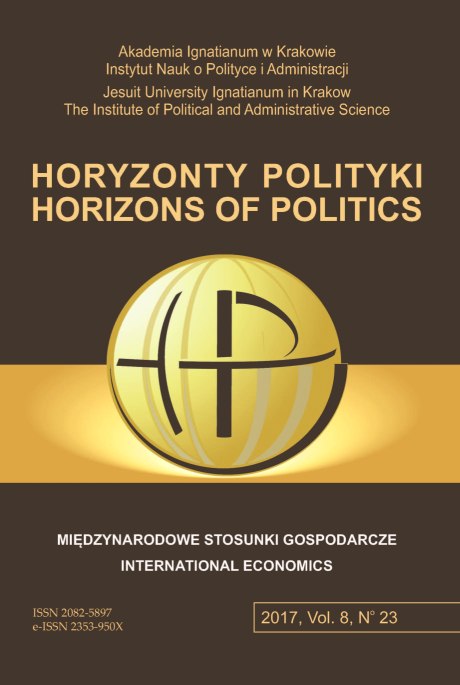Znaczenie inteligencji kulturowej w zarządzaniu międzynarodowymi zespołami projektowymi
The importance of cultural intelligence in managing international project teams
Author(s): Dorota SimpsonSubject(s): Cognitive Psychology, Organizational Psychology, Management and complex organizations, Social Informatics, Sociology of Culture
Published by: Uniwersytet Ignatianum w Krakowie
Keywords: cultural intelligence; communication; teams; project teams; virtual teams;
Summary/Abstract: RESEARCH OBJECTIVE: This article aims at identifying the role of cultural intelligence in managing international project teams, in particular it focuses on virtual teams. The problem of cultural intelligence and its place in international business is relatively better developed in English‑language sources than in Polish ones. It was the reason to undertake this research. THE RESEARCH PROBLEM AND METHODS: The article is a review of different sources to present the place and the role of cultural intelligence in the context of various forms of team work, including virtual teams, in international environments. Usually cultural intelligence is examined in terms of intercultural management or managerial competencies. It was one of the reasons of choosing the topic related to international, virtual teams. Methodology applied in the article was based on analyses of the relevant literature, and other sources like publications of research institutions, consulting companies reports and participating observation as a member of international projects and a teacher of foreign students in Poland and in other countries. Descriptive method was utilized to present the results of the research. THE PROCESS OF ARGUMENTATION: The line of reasoning consists of three essential chapters. In the first, changes and trends in the work organisation and utilization of global talents were presented. The second chapter was dedicated to analysis of the concept of cultural intelligence and its components in the context of international team work. In the third chapter, types of inter‑national teams were described with particular emphasis on virtual teams and their communication problems resulting from the insufficient level of members’and leaders’ cultural intelligence. The argumentation was based on the relevant literature, results of empirical research conducted and published by various organizations and own international experience. RESEARCH RESULTS: Cultural intelligence, as a relatively new construct,is not sufficiently highlighted in the Polish literature related to human resource management, therefore the article was based on English‑language sources. The results of conducted research show the growing importance of international project teams, who increasingly work as virtual teams, where proper communication plays a key role. One of the most important barriers in their effective action is cultural misunderstanding. CONCLUSIONS, INNOVATIONS AND RECOMMENDATIONS:Management of companies operating in the global market should pay more attention to, recruitment and selection and intercultural training of managers involved in international activity. In particular, it relates to international projects performed by teams consisting of the representatives of different cultures who perform and communicate, in the main, virtually. It is recommended to include CQ tests into the selection procedures to examine the level of cultural intelligence of candidates. It would have also helped to design intercultural training and development tailored to the needs of employees. International teams, in particular virtual one should start their cooperation from initial face‑to‑face meetings of all members. They can be joined with intercultural training and integration activities that can result in establishing interpersonal relationships before the team starts working.
Journal: Horyzonty Polityki
- Issue Year: 8/2017
- Issue No: 23
- Page Range: 163-182
- Page Count: 20
- Language: Polish

